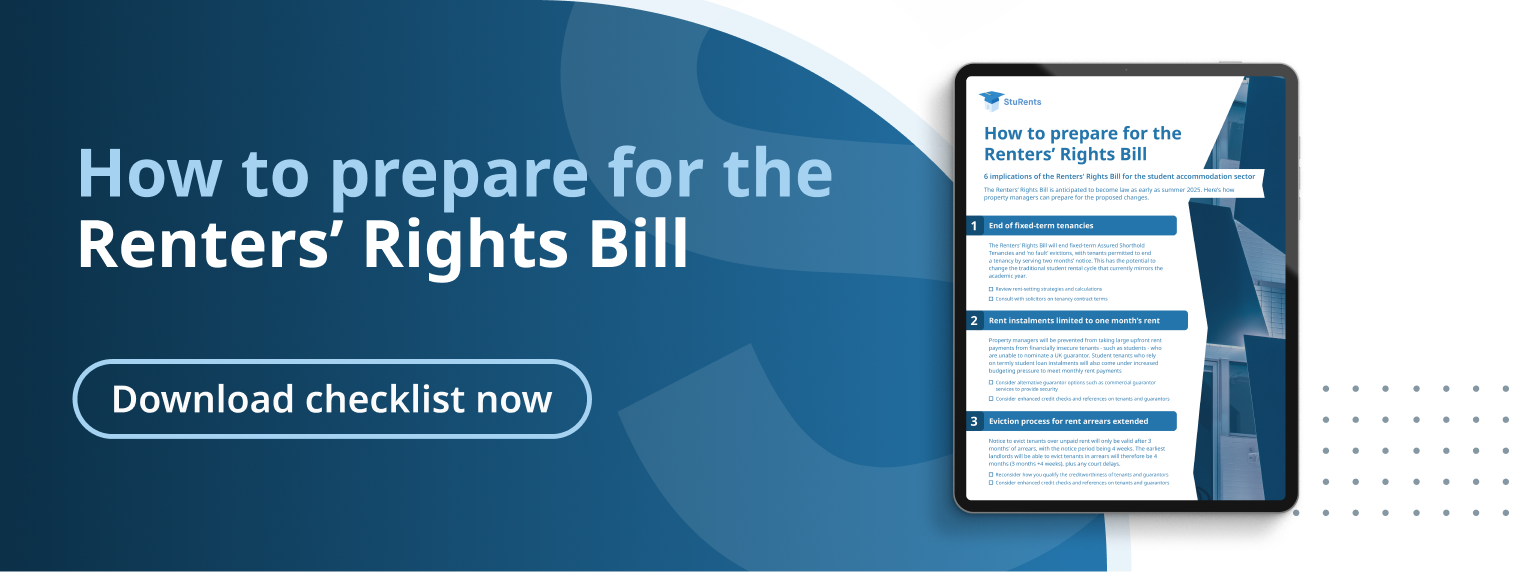
When will the Renters’ Rights Bill become law?

Image courtesy of Adobe
The Government has released the draft of the Renters’ Rights Bill, a successor to the Renters’ Reform Bill introduced by the previous Conservative government. While the Renters’ Reform Bill didn’t progress fully before the recent election, Labour is determined to see its version of the legislation through, with a commitment to tenant protection and significant reforms to the private rental sector.
We’ve explored the timeline of the Renters’ Rights Bill’s journey through Parliament and when it is likely to become law.
What is the Renters’ Rights Bill?
The Renters’ Rights Bill is a key piece of legislation designed to overhaul the private rental sector in the UK. It aims to protect tenants from unfair practices and improve housing standards by:
- Abolishing Assured Shorthold Tenancies (ASTs) and replacing them with periodic tenancies.
- Ending ‘no-fault’ Section 21 evictions, meaning landlords must provide a valid reason to reclaim their property.
- Restricting grounds for possession around rent arrears, or if the landlord intends to sell or move in.
- Setting tighter regulations on rent increases and allowing tenants to challenge above-market hikes.
- Strengthening anti-discrimination protections for tenants in receipt of benefits or renting with children, and giving tenants the right to request pets in their rental property.
These reforms are expected to dramatically transform the private rental market, offering tenants more security and protection, while also imposing stricter responsibilities on landlords.
Renters’ Rights Bill Timeline
The Renters’ Rights Bill is currently progressing through Parliament, and if all goes according to plan, it could become law by the summer of 2025. Below is an estimated timeline of key stages for the Bill’s passage.
Second Reading: 9 October 2024
The Renter’s Rights Bill has now passed its second reading in Parliament. This stage involved an initial debate in Parliament on the general principles of the Renters' Rights Bill. The fact that the Bill moved through the Second Reading so quickly, despite some resistance from the Opposition, reiterates Labour's commitment to delivering the Bill as quickly as possible.
Committee Stage: October to November 2024
On 22 October, the Renters’ Rights Bill progressed to the Committee Stage, chaired by Florence Eshalomi, MP for Vauxhall and Camberwell Green. In the Committee Stage, MPs examine each clause of the Bill in more detail, discussing amendments and making necessary revisions. Due to the bill's complexity, this stage often takes 2-3 months.
Report Stage and Third Reading: December 2024 to Early 2025
The Report Stage is when MPs review the Bill’s amendments before it returns to the floor for the Third Reading. This process typically takes a few weeks, and if the Bill progresses smoothly, it could complete these stages by early 2025.
House of Lords: Early 2025
Once the Bill passes through the House of Commons, it will be sent to the House of Lords for further scrutiny. The Lords generally take 2-3 months to review legislation, so the Renters’ Rights Bill could pass this stage by Spring 2025.
Royal Assent: Mid-2025
After both Houses' approval, the Bill will be sent for Royal Assent. This is typically a formality, and once granted, the Renters’ Rights Bill will officially become law. This is expected to occur by Summer 2025.
When will the Renters’ Rights Bill become law?
Given the pace at which the Renters’ Rights Bill is progressing through Parliament, it is anticipated to become law by summer 2025. Of course, these timelines are subject to change depending on any potential amendments or delays during the parliamentary process.
Prepare for the Renters' Rights Bill
Download our checklist to ensure you're ready for the changes the Renters’ Rights Bill will bring. Stay ahead of the legislation and make sure you're fully prepared for its impact on the private rental sector.
Share


